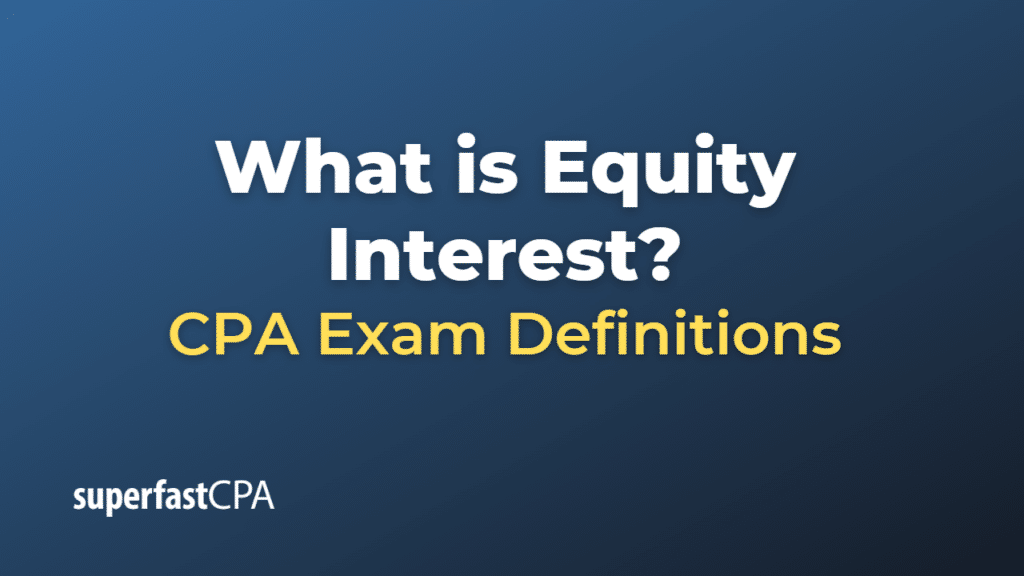Equity Interest
Equity interest refers to the ownership stake in a company that is held by investors, including both individuals and institutional investors. This stake gives them a claim on a portion of the company’s assets and earnings.
Here are some key points about equity interest:
- Ownership: Equity interest represents an ownership stake in a company. This can come from buying shares of stock directly or it can be granted, as in the case of stock options awarded to employees.
- Voting Rights: Equity interest often includes voting rights, which allows shareholders to have a say in company decisions, such as electing the board of directors or voting on corporate policy. The number of votes a shareholder gets is usually proportional to their equity interest.
- Dividends: Shareholders may also receive dividends, which are portions of a company’s profits distributed to its owners. The size of the dividends a shareholder receives usually depends on the size of their equity interest.
- Residual Claim: In the event of liquidation of the company, after all liabilities and debts are paid, shareholders have a residual claim on any remaining assets.
- Capital Gains: If the value of the company grows over time, shareholders may also make a profit by selling their shares at a higher price than they paid. This is known as capital gains.
The specific rights and benefits associated with an equity interest can vary depending on the type of shares (common vs. preferred), the company’s bylaws, and the jurisdiction in which the company is incorporated.
Equity interest should not be confused with debt interest, which is the interest paid to creditors on a company’s debt. Debt interest is a fixed obligation and must be paid before any dividends are distributed to shareholders.
Example of Equity Interest
Let’s say you decide to invest in a publicly-traded company, for example, Apple Inc. You purchase 100 shares of Apple’s stock at $150 per share, investing a total of $15,000.
By purchasing these shares, you now have an equity interest in Apple. This equity interest gives you certain rights:
- Ownership: You are now a partial owner of Apple. While your ownership stake is relatively small given the total number of outstanding shares, you are nonetheless a shareholder.
- Voting Rights: As a shareholder, you have the right to vote on certain matters. For instance, Apple holds an annual shareholders meeting where you can vote on the appointment of board members and other major corporate decisions. Your voting power typically correlates with the number of shares you own.
- dividends: If Apple declares a dividend, you will receive a portion of those dividends. The amount will depend on how many shares you own. For instance, if Apple declares a dividend of $1 per share, you would receive $100 (100 shares x $1).
- Residual Claim: If Apple were ever to liquidate, after all its debts and obligations are paid, shareholders have the right to any remaining assets.
- Capital Gains: If the price of Apple stock increases, you can sell your shares for more than you paid. For example, if the price per share increases to $200 and you decide to sell your shares, you would receive $20,000 (100 shares x $200), realizing a capital gain of $5,000 ($20,000 sale proceeds – $15,000 initial investment).
Remember, investing in the stock market involves risks, including the potential loss of your investment. It’s always a good idea to do thorough research and consider seeking advice from a financial advisor before making investment decisions.













